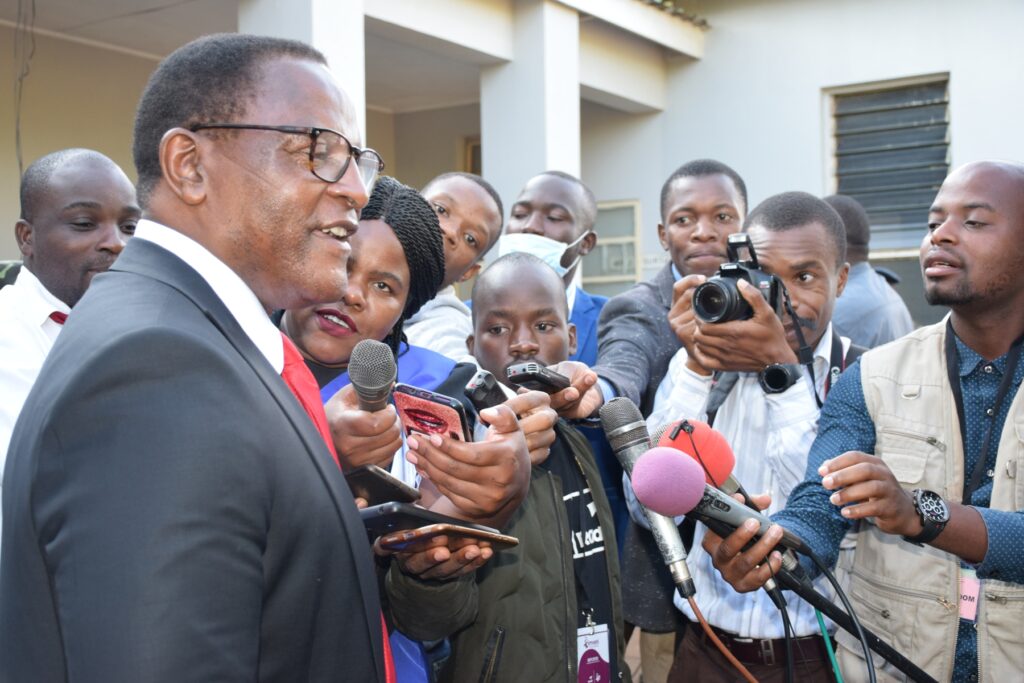
In a recent development, the Media Council of Malawi (MCM) has come under scrutiny and faces a pressing challenge – addressing the issue of poor salaries for journalists and media practitioners in the country.
The media governing body’s call to uphold dress codes during functions has been met with criticism, with many journalists and industry experts suggesting that MCM should focus on improving journalists’ perks and working conditions instead.
The controversy unfolded when the MCM issued a public statement expressing concerns over what they described as “poor dressing” by media practitioners during official events. This condemnation came following complaints raised by State House and Parliament over journalists’ attire.
While the intention behind promoting professionalism and decorum in the media industry is commendable, some members of the journalism community believe that the priority should be on addressing more pressing matters affecting the welfare of journalists in Malawi.
Leading the charge for change, Wisdom Chimgwede, the Board Chairperson of MCM, and Executive Director Moses Kaufa highlighted their commitment to raising the standards of journalism in the country.
However, critics have argued that focusing on dress codes without considering the underlying challenges journalists face sends the wrong message and undermines the media profession’s integrity.
Prominent media practitioner Jack McBrams took to Twitter to voice his concerns, emphasizing that dressing well is not the core issue but rather a symptom of the deeper problem – the inadequate compensation of journalists.
He highlighted that underpaid journalists struggle to make ends meet and investing in proper attire becomes a challenging task. By prioritizing fair pay for journalists, MCM can indirectly improve the dressing matter as well.

Echoing these sentiments, journalist Howard Mlozi urged media houses to play their part in supporting the welfare of reporters. He argued that it is disheartening to see young, vibrant journalists struggling in poverty, forced to endure years of internships with little to no salary.
This not only stifles their professional growth but also perpetuates the cycle of underpayment and exploitation within the media industry. Mlozi further called on the Malawi Communications Regulatory Authority (MACRA) to take a stand against abusive media houses that fail to pay journalists adequately.
According to him, MACRA should intervene to protect the rights and dignity of journalists, ensuring they receive just remuneration for their hard work and dedication.
It is no secret that many journalists in Malawi face challenging working conditions, with some enduring months without pay, and others receiving salaries as low as K30,000 per month.
This lack of financial stability not only affects their daily lives but also compromises the quality of their work. Some journalists are even kept on prolonged internships, receiving meager allowances instead of proper salaries, which only deepen the problem.
To address these concerns and uplift the journalism profession in Malawi, the MCM needs to engage with media houses and stakeholders to advocate for fair pay and improved working conditions for journalists. Encouraging a sustainable business model that values and supports its reporters is crucial in promoting responsible and independent journalism.
In addition to addressing salary issues, it is imperative for media organizations and regulatory bodies to collaborate in establishing guidelines that strike a balance between professional dressing and respecting journalists’ rights to personal expression.

Striving for a conducive work environment that respects diversity and creativity can go hand in hand with promoting professionalism and ethical reporting.
In conclusion, the Media Council of Malawi has been urged to prioritize addressing journalists’ perks and working conditions over enforcing dress codes.
By focusing on fair pay and providing proper salaries to journalists, the MCM can significantly improve the overall quality and integrity of journalism in the country.
Collaborative efforts between media houses, regulatory authorities, and the MCM are essential in shaping a media landscape that upholds the rights, dignity, and professionalism of journalists while promoting responsible and independent journalism for the betterment of Malawi’s society.



